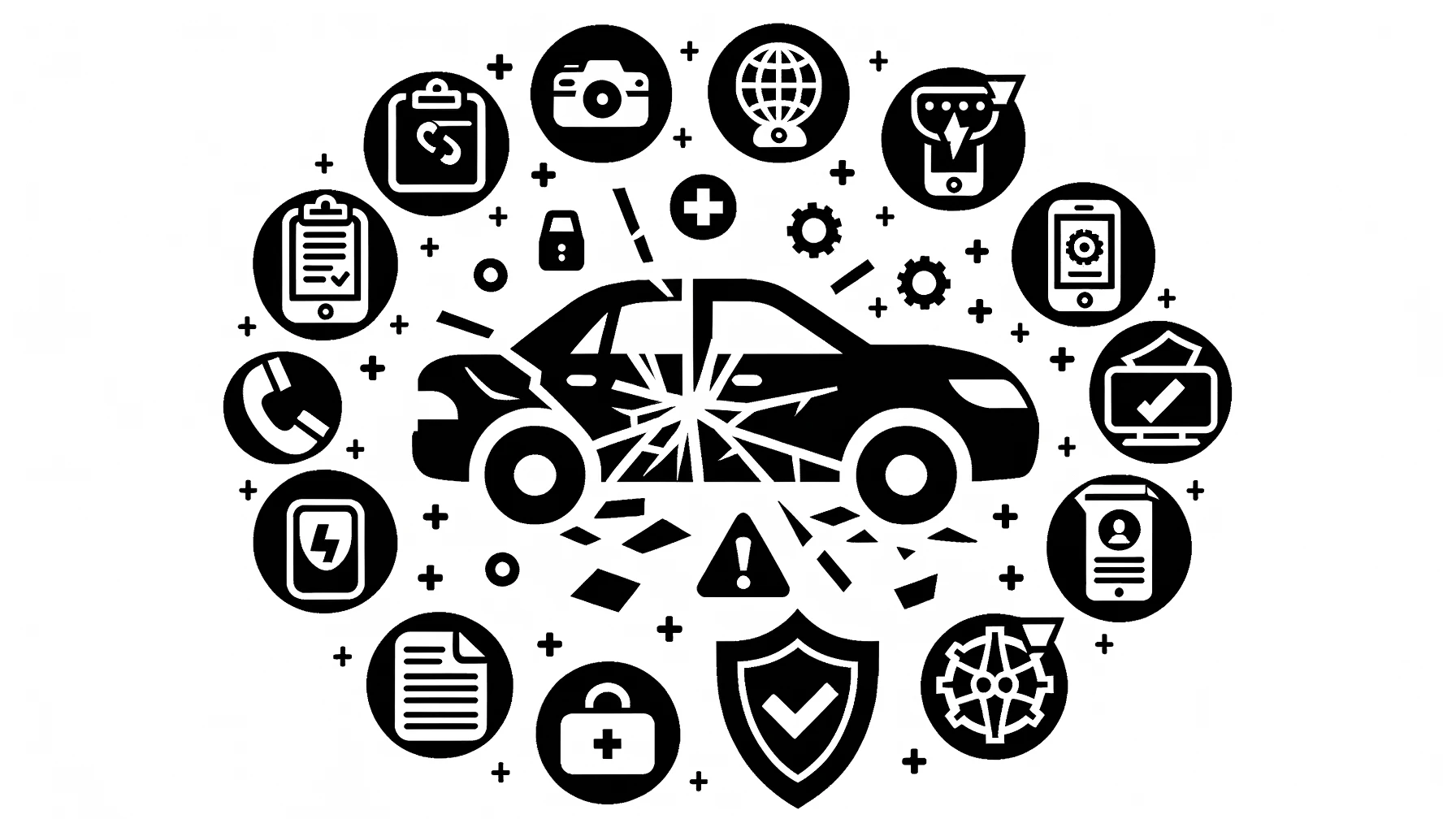In the unfortunate event of an accident involving a rental car, it is crucial to know how to react and handle the situation correctly. This article will guide you through each stage of dealing with such an incident, from collecting evidence at the scene to negotiating with insurance companies.
Immediately after the accident
Gather information and call for help
If anyone is injured, your first priority should be to call emergency services. Once you have done this, assess the damage done to both vehicles involved in the accident. Make sure to exchange contact and insurance information with the other driver(s) and take pictures of the damage, as these will come in handy when reporting the incident to the car rental company and your insurance provider.
Contact the car rental company
As soon as possible after the accident occurs, get in touch with the car rental company that provided you with the vehicle. They will instruct you on how to proceed, providing guidance on getting the damaged car towed and arranging a replacement if necessary.
Dealing with the aftermath
File a report with the police
To avoid any issues with the car rental company or your insurance provider, it’s essential to file a police report regarding the accident. Some countries even require this by law. Be sure to contact the local police department within 24 hours of the accident and provide them with all the details they need. The police report can greatly contribute to determining fault and settling disputes.
Record every detail of the accident
When filing the report with both the police and the car rental company, be sure to provide all pertinent details. This may include:
- Location and time of the accident
- Pictures of the damage to both vehicles
- Contact information of the other driver(s) involved
- Information about any witnesses present at the scene
- Description of events leading up to the accident.
By thoroughly documenting the event, you can help establish responsibility for the accident and strengthen your case should it escalate into a legal dispute.
Get in touch with your insurance provider
Whether you have opted for the rental car company’s insurance or your own, contact your insurer to inform them of the incident. They will then guide you through the process of filing a claim and will assess the extent of the damage done to the vehicle. In some cases, they may also suggest methods of handling injury claims if necessary.

Facing potential consequences
Understanding liability
The party found at fault for the accident is generally liable for repairs and damages, including those incurred by the rental car. However, this may differ depending on the specific terms of your rental agreement and insurance policy. Ensure that you understand your level of liability before renting a car, so there are no surprises following an accident.
Evaluating financial repercussions
In most cases, an insurance policy – whether that provided by the car rental company or your own – should cover the cost of repairing or replacing the rental vehicle. However, it is important to note that you may still be responsible for paying a deductible or excess fee, which may vary depending on your policy. Additionally, after an accident, it’s possible to see a temporary increase in your insurance premiums.
Considering the loss of use
One often overlooked aspect of accidents involving rental cars is the loss of use suffered by the rental company. While the damaged vehicle is being repaired or replaced, they lose the ability to rent it out and earn income. As such, they may hold you responsible for compensating these lost earnings. Make sure to check your insurance policy to verify whether it covers this type of liability.
Preventing future accidents
Choose a reliable car rental provider
To avoid problems in the event of an accident, do some research when choosing a rental car company. Reading reviews from past customers and comparing rental policies can give you an idea of which providers offer the best service and fairest terms.
Review insurance options
Before renting a vehicle, carefully review the insurance coverage provided by both the car rental company and your own personal policy. Evaluate the costs and benefits of each option, considering factors such as deductibles, coverage limits, and third-party liability. If traveling internationally, make sure to examine whether your current insurance policy will cover rentals abroad.
Familiarize yourself with the driving laws of your destination
Last but not least, ensure that you are aware of any specific driving regulations in the location where you will be renting the car. This may include speed limits, traffic signs and signals, and other rules of the road. Knowledge of local laws can significantly reduce the risk of getting into an accident, protecting both yourself and the rental vehicle.
In conclusion, while an accident with a rental car may seem daunting, following the steps outlined above can help guide you through the process and resolve potential issues smoothly. Being informed about your rights, responsibilities, and insurance coverage will make it easier to navigate this challenging experience.




